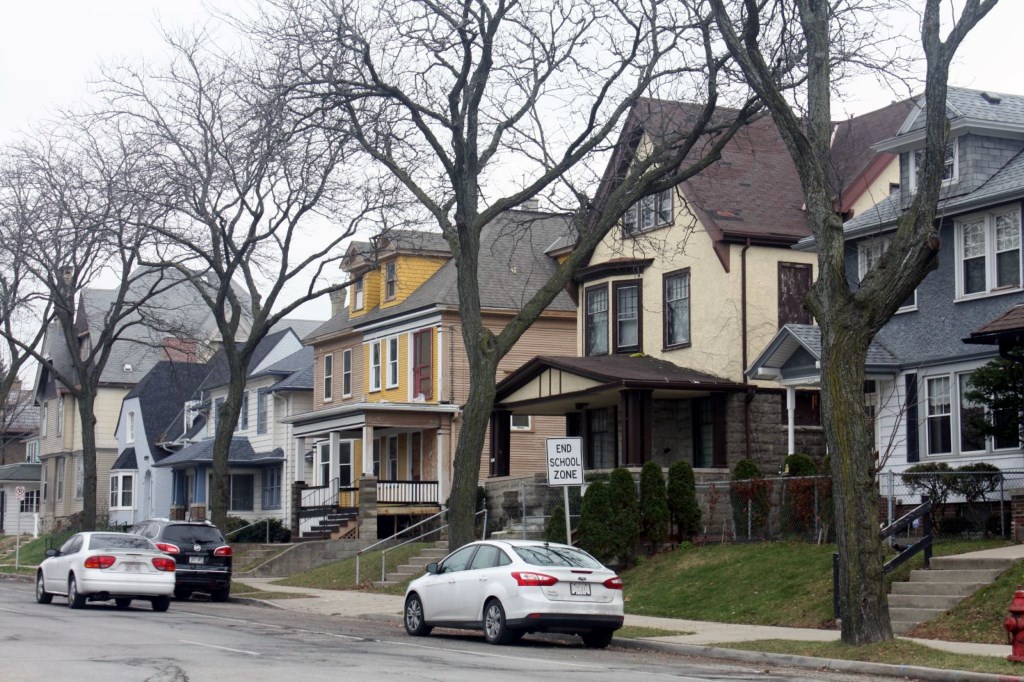Most Will Get Lower Property Tax Bill
Average homeowner in state will see 3% reduction.
Here is some holiday cheer: as prices of everything go up amid inflation and supply-chain worries, there may be some savings coming your way in the property tax bill that will soon be in your mailbox.
The last, best estimate by the Legislature’s budget office says the after-credits property tax bill on a median-valued home will be $3,214 — a $101, or 3%, decrease from the bill that homeowner opened last December.
The estimate comes with this fine-print warning, however: If your school district passed a referendum for new buildings, to remodel buildings or to raise more operating cash this year, that tax bill you are about to open may increase. The 3% decrease is a statewide average, remember.
Still, the 3% decrease is worth an Old Fashioned-lifting holiday toast.
Why? Because LFB’s estimates show that property taxes on that average home only went up 1% in the last decade (from $3,183 in December 2011 to $3,214 this December). Compare that to the 31% hike in the previous decade (from $2,428 in December 2001 to $3,183 in December 2011).
Has Wisconsin’s property tax dragon finally been slayed? No, but it’s been put in a coma.
LFB says the budget that Democratic Gov. Tony Evers gave the Republican-controlled Legislature in February would have raised that $3,214 average tax bill by $72 more than the Republicans’ plan, because it would have lifted some spending controls on schools and local governments.
“Republicans approved historic tax relief to middle-class Wisconsin taxpayers,” Rep. Mark Born and Sen. Howard Marklein, cochairs of the budget-drafting Joint Finance Committee said last summer. They said the tax cuts totaled $3.4 billion, which included $650 million to hold down property taxes. Republicans said their budget paid two-thirds of public school costs, for example.
“This year has been incredibly difficult for individuals, families, and businesses, and this money will result in significant income, property, and personal property tax cuts to provide much needed relief,” the Republican leaders added.
Controlling property taxes was one reason the non-partisan Wisconsin Policy Forum said Wisconsin led the nation in the 20-year drop in its total tax burden – from fourth highest in 1999 to 23rd highest in 2019.
The Policy Forum’s overall statistics:
“In 1999, [Wisconsin] state and local governments took in $17.4 billion from taxpayers – about 12.2% of total personal income in the state (the fourth–highest percentage in the country) and $3,288 per capita (sixth-highest).
Republicans, who controlled the governor’s office for eight years and the Legislature for 10 years, said they deserved credit for the drop in tax burden.
The Forum report documented how legislators and governors have squeezed how much local governments can levy in property taxes.
“Since 2011, the state generally has restricted the percentage increase in municipal and county property taxes used for operations to a community’s rate of net new construction, which at the statewide level has been below 1.7% since 2008.
“The state has also limited revenues for school districts, including property taxes, and made cuts to property taxes for technical colleges and personal property while also repealing [a $100-million] state levy.”
The Policy Forum also warned that Wisconsin’s property tax dragon could still awake:
“A rise in both school referenda to [exceed spending] limits and the growing use of levies for debt payments has put upward pressure on property taxes in recent years.”
Still, many homeowners will gladly open a tax bill with a lower number.
Steven Walters started covering the Capitol in 1988. Contact him at stevenscotwalters@gmail.com
The State of Politics
-
A Wisconsin Political Trivia Quiz
 Dec 15th, 2025 by Steven Walters
Dec 15th, 2025 by Steven Walters
-
The Fight Over Wisconsin’s House Districts
 Dec 8th, 2025 by Steven Walters
Dec 8th, 2025 by Steven Walters
-
The Battle Over On-Line Betting
 Nov 24th, 2025 by Steven Walters
Nov 24th, 2025 by Steven Walters























Imagine what we could do with property taxes if we made manufacturers pay more then 0.4% tax, or allowed cities to actually have a sales tax instead of loading all of the costs in property and wheel taxes? Or closed the dark store loophole and other assessment practices that make homeowners pay more property taxes while businesses pay less.
These are choices that could be changed if our Legislature wasn’t gerrymandered to death.
Many big cities have income taxes on income earned there. For example, if somebody lives in Brookfield, but works in Milwaukee, he/she would pay tax to Milwaukee on that income.
It’s unclear how well this would work during a pandemic when so many downtown offices are still empty.
I am glad folks will be happy when they open their tax bill.
I hope they are as happy when they call for emergency medical services or a police call for service, or when driving on their neighborhood streets makes them think they are on the Appian Way.
The rest of the state and the white supremacist white collar benefit the most from being a parasite on MKE.